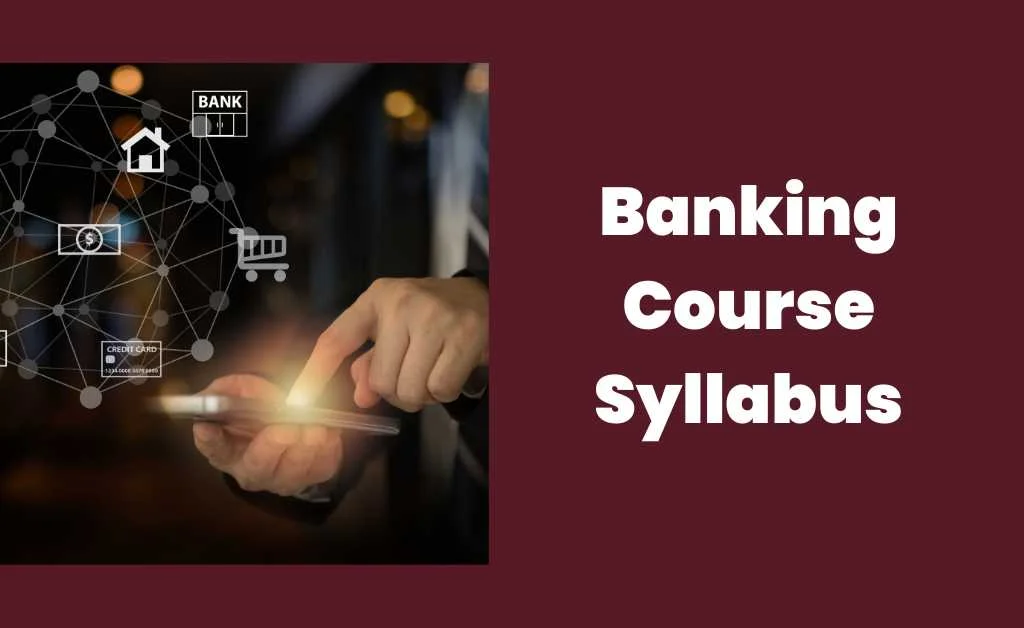Table of Contents
ToggleIntroduction
Wishing to pursue a career in Banking Sector, then you may be interested in taking Banking courses after graduation that not only imparts theoretical knowledge but also provides practical training. By enrolling in a banking beginning course, you can acquire essential skills and stay updated with the latest industry trends.
The curriculum of these courses covers diverse aspects such as financial analysis, customer service, and regulatory compliance. Additionally, working alongside seasoned professionals during real-world projects will allow you to develop valuable networking contacts and build your confidence as a future banker.
The experience gained through these courses will equip you for success by honing your problem-solving ability, analytical thinking, and interpersonal skills – all vital competencies required for creating an impactful career in this dynamic field. Besides that, you get the opportunity to learn and interpret economic data and read financial statements, and you will gain an understanding of customer service principles.
Through case studies and simulations, students can apply their knowledge to topics such as ethics and personal finance management. In addition to honing problem-solving skills, students can also build their professional network in the finance industry by participating in practical activities such as these.
Banking Courses with Placements
There exists a plethora of banking courses tailored to your needs. From learning the fundamentals of finance and investment management to diving deep into risk management and investing strategies, each course offers something unique that can help advance your career path. However, if you’re seeking that extra edge when it comes to gaining hands-on experience in the industry and securing employment post-graduation, then choosing a banking course may be the ideal choice for you.
One such program is the Bachelor’s Degree in Banking and Finance – combining classroom instruction with practical training ensuring students gain an intimate understanding of financial markets while honing their skills in corporate finance, financial planning & taxation, risk management, and investing strategies among other crucial areas.
The Associate’s Degree in Financial and Finance program prepares its graduates for a wide range of professional prospects in the financial sector. Students obtain a thorough knowledge of what it takes to thrive in such a competitive sector thanks to the thorough study of business fundamentals, including sales and marketing, operations management, communication skills, and customer service abilities.
Compared to Bachelor’s degree programs that solely concentrate on financial themes, this program provides students with a more broad-based curriculum. But it’s important to remember that there are also specialized diploma or certification programs available for people seeking more focused training with job placement prospects. These programs provide prominent credentials including the Risk Management Certification (RM) and Certified Public Accountant (CPA).
You can also check our other blogs: CA vs CFA
Banking Course Eligibility
It is important for students to understand the eligibility criteria before opting for a banking course. They combine theoretical knowledge and practical skills to ensure a successful transition into the finance industry.
An important factor in determining eligibility for this course is education. A student may need a certain level of schooling or higher education qualification, such as a finance or economics bachelor’s degree, depending on the institution and program requirements.
These courses typically require certain educational qualifications and skill requirements, including strong analytical abilities and knowledge of financial products and services, as well as some degree of experience in the sector, such as relevant work experience or volunteer work.
Banking Course Syllabus

Banking Course has a syllabus that includes the objectives, topics, and professional development resources available.
The Associate’s Degree in Banking and Finance covers a broad spectrum of business principles instead of specific financial topics that Bachelor’s degree programs usually focus on. This type, naturally, provides students with an understanding of sales and marketing, business planning and operations management, communication techniques, and customer service skills – all essential for working in banking.
Moreover, it offers a comprehensive overview covering corporate finance, portfolio management trading principles, strategic financial analysis, forecasting investments theory, practice risk management, derivatives hedge funds & private equity. Students also acquire knowledge about significant areas such as financial statement analysis and accounting principles& standards; many courses may even provide classes examining international finance& investments.
Best Online Banking Courses

Providing industry-ready training for career-oriented students who want to make their mark in the banking industry, ZIGEDU offers one of the most popular online banking courses. In addition to business analysis and financial markets analysis, the 12-module curriculum covers a wide range of topics.
While taking self-paced courses, interns are also able to work closely with faculty members and receive real-time guidance from mentors.
Students who are looking for comprehensive experience can check out SIBM Academy’s Banking & Finance Program, which includes case studies from some of India’s leading banks as well as theoretical knowledge. To ensure that students are able to apply their learning directly to the job role they are seeking after completing the program, this institute offers workshops on topics such as consumer lending, corporate finance, and more.
GetSkill Up’s Advanced Financial Modeling & Valuation Course in partnership with Middlesex University London offers an international perspective.
Finding a Suitable Banking Course
You can check on these certain things to find a suitable banking course-
- Make sure the course you select has excellent job prospects within the industry.
- Ensure that the institution offering the program has a good reputation among employers and provides comprehensive training programs.
- Make sure that they offer assistance with job applications and work placement after the course is completed.
- Also, checking that they have additional resources such as online tutorials or study materials is important too.
- Upon course completion, students can also apply for internships with these as an added advantage.
- Research internships or shadowing opportunities related to your chosen profession so you can gain valuable experience.
Benefits

- In-demand Sector:
The BFSI sector has tremendous opportunities in it. Though the competition is high, if you are ready to face the challenges ahead this is the best course for you.
- High-paying jobs
If you’re looking that provides you with safety and a good salary package at the same, you can consider the BFSI sector as it offers a good salary package.
- Networking
BFSI requires substantial networking. This is important since specialists have extensive expertise in dealing with complex financial concerns and challenges. Candidates for the Post Graduate Certificate Programme in Banking and Finance come from a variety of backgrounds. As a result, it’s an excellent opportunity to build a peer network and meet industry specialists.
Job Opportunities
You may be wondering what career options are available within the banking industry.
The financial sector is highly varied, providing a broad range of prospects for those who learned about banking.
A great starting point may be an entry-level job where you can build on your experience and grasp the intricacies of financial systems. Occupations such as loan officer, customer service representative, credit analyst, banking associate, or bank teller all necessitate an understanding of the banking industry which you have developed by taking a Banking Course with Placement.
Corporate services possess a range of job roles such as operational risk management or compliance & regulatory affairs, which involves designing strategies to comply with government regulations in all facets of business procedures; from customer information security to anti-money laundering.
Other than this, there are tons of job opportunities within this ever-growing industry.
Salary after Banking Course

As an experienced professional in the banking field, you can make a competitive salary. Throughout your banking career, you should prioritize several best practices so that you can maximize your success. This includes developing strong problem-solving skills, expert knowledge of products and services within the industry, staying on current trends and regulations, building relationships with coworkers and customers alike, and continually seeking new opportunities for career advancement.
Having a firm understanding of the fundamental aptitudes as well as all the other know-how & expertise needed for success in banking brings greater possibilities for career progression. Sharpening your education or taking extra classes enables you to build even more credibility within the industry which can eventually result in higher salaries and promotions. Moreover, enlarging job tasks puts you on a path towards acquiring more authority and acknowledgment from colleagues, which further adds up to your earnings.
Conclusion
Taking up this course will give you valuable experience in the financial industry. Furthermore, most banks prefer employees who have acquired some practical knowledge and have undergone formal training related to their services. It also offers excellent career opportunities in areas such as finance, investment banking, accounting, auditing, securities trading, insurance broking, and many more. For those interested in making their mark in India’s rapidly growing financial sector, pursuing a banking course would be the best choice.
Frequently Asked Questions (FAQs)
Chief Financial Officer offers a top salary with a staggering average pay of 34 lakhs each year.
B.Com graduate programs assist students in developing a strong knowledge basis in disciplines such as banking, finance, and so on. The banking industry is the leading choice among B.Com graduates.
- MBA in Banking and Finance
- MBA in Global Banking and Finance
- MBA in Islamic Banking and Finance
- MCom (Banking)
- M.Sc. in Finance Banking and Insurance
- M.Sc. in Banking and Risk
- M.Sc. in Banking and Finance
- M.Sc. in Financial Services in Banking
Candidates must be degree-level graduates of an accredited institution. The candidate must be a minimum of 20 years of age while the maximum age is 30 years.



